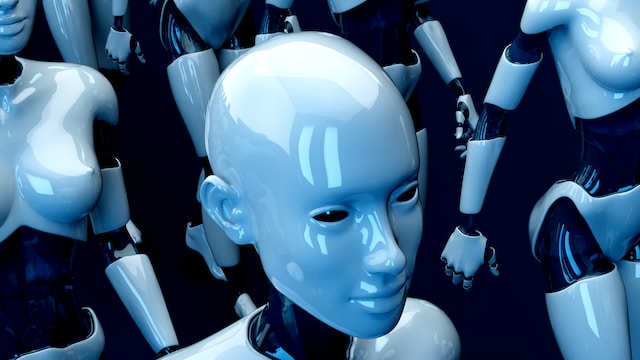Artificial Intelligence also known as AI is a rapidly growing technology that has been making headlines in recent years. From virtual assistants to self-driving cars AI has become a ubiquitous presence in our daily lives. But what exactly is AI and how does it work? we will explore the basics of AI and provide you with some fascinating facts about this exciting field of technology.
1. What is AI?
AI is the simulation of human intelligence processes by machines, especially computer systems. These processes include learning reasoning and self-correction. AI can be classified into two main categories: narrow or weak AI and general or strong AI. Narrow AI can perform specific tasks that it is programmed to do such as recognizing faces or playing chess. General AI on the other hand is capable of performing any intellectual task that a human can do.
2. Types of AI
There are three main types of AI:
- Reactive machines – These are the most basic forms of AI and do not have the ability to form memories or use past experiences to make decisions. They can only react to specific inputs.
- Limited memory – This type of AI can use past experiences to make future decisions.
- Self-aware – This is the most advanced type of AI and it has the ability to not only understand and process information but also recognize emotions and use reasoning to make decisions.
3. How does AI work?
AI systems use algorithms and machine learning to process data and make predictions or decisions. They rely on large amounts of data to “learn” and improve their accuracy over time. AI systems can also use neural networks to simulate the behavior of the human brain.
4. Applications of AI
AI has numerous applications in various industries including healthcare finance and transportation. Some examples of AI in action include:
- Virtual assistants like Siri and Alexa
- Self-driving cars
- Fraud detection in finance
- Medical diagnosis and treatment planning
- Recommendation systems for e-commerce
5. The future of AI
The future of AI is promising and is expected to impact every aspect of our lives. Some predictions for the future of AI include:
- More widespread use of AI in healthcare
- The automation of many jobs including those in finance and transportation
- The development of more advanced and sophisticated AI systems
- The potential for AI to solve complex problems such as climate change and world hunger
6. Benefits and Risks of AI
Like any technology AI comes with both benefits and risks. Some benefits of AI include:
- Increased efficiency in various industries
- Improved accuracy in decision-making
- The potential to solve complex problems
However there are also potential risks associated with AI such as:
- Job loss and unemployment
- Bias and discrimination in decision-making
- The potential for AI to be used for malicious purposes
7. Ethical Considerations of AI
As AI becomes more advanced ethical considerations become increasingly important. It is essential to consider the implications of AI on human autonomy privacy and accountability.
History of AI
AI has a long and complex history dating back to ancient times when Greek myths depicted artificial beings with human-like abilities. However the modern-day concept of AI began to take shape in the mid-20th century.
Types of AI
AI can be classified into two main categories: narrow or weak AI and general or strong AI. Narrow AI is designed to perform a specific task whereas general AI is capable of performing any intellectual task that a human can.
Applications of AI
AI is being used in a wide variety of applications from autonomous vehicles and drones to virtual assistants and medical diagnosis. AI has the potential to revolutionize many industries and change the way we live our lives.
Benefits and Drawbacks of AI
There are many potential benefits of AI including increased efficiency improved accuracy and the ability to handle large amounts of data. However there are also concerns about the impact of AI on employment privacy and security.
Future of AI
The future of AI is still uncertain but many experts believe that it will continue to advance rapidly in the coming years. There are many challenges that need to be overcome such as improving the safety and reliability of AI systems but the potential benefits of AI are too great to ignore.
Ethical Considerations
As AI becomes more advanced there are many ethical considerations that need to be addressed. These include issues such as bias accountability and transparency.
AI is a rapidly evolving field with the potential to change the world in many ways. While there are many challenges that need to be overcome the benefits of AI are too great to ignore. It is up to us to ensure that AI is developed in a responsible and ethical manner.

Discover a world of inspiration and creativity with facex. From art and design to technology and lifestyle, our platform features diverse content to empower and uplift. Join our community and explore a new perspective today
